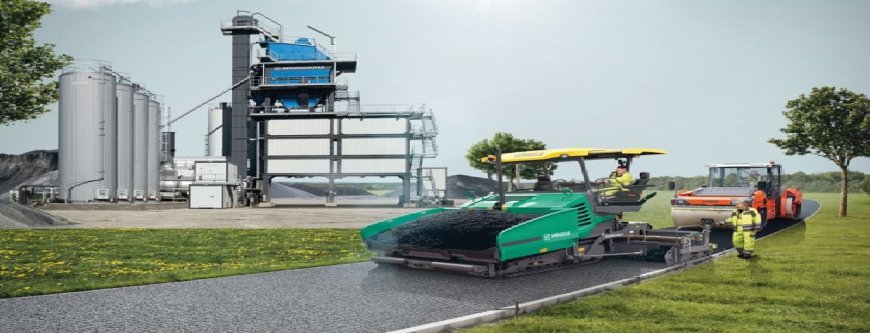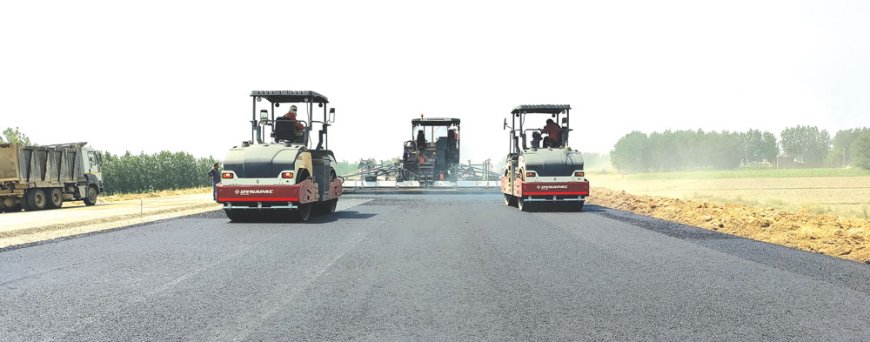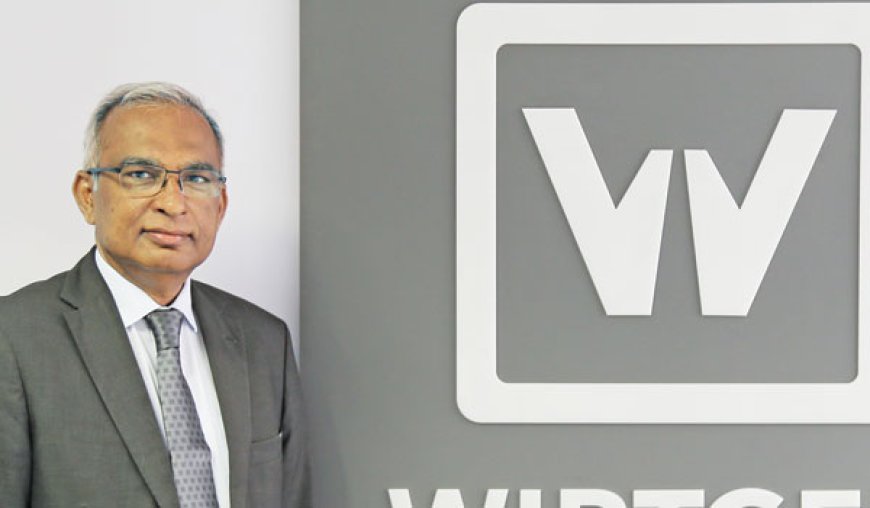LAYING THE GROUNDWORK! What’s Fueling Demand in ASPHALT PLANTS and PAVERS

In the rapidly evolving world of construction, the asphalt plants and pavers industry stand at a critical juncture, where technology, sustainability, and market demand converge to shape the future of road infrastructure. As governments and private sectors around the globe invest heavily in upgrading and expanding transportation networks, the need for efficient, environmentally friendly, and technologically advanced asphalt solutions has never been greater.
Equipment Times delves into the latest market highlights, explore ground-breaking technological innovations, and examine the challenges and opportunities that lie ahead for asphalt plants and pavers. As we pave the way for smarter, more sustainable infrastructure, it’s clear that the future of road construction is being built today—one layer of asphalt at a time.
The global market for asphalt plants and pavers has seen significant growth in recent years, driven by an increasing demand for road infrastructure. In both developed and developing nations, governments are investing heavily in road construction and maintenance projects, particularly in emerging economies where urbanization and industrialization are rapidly expanding. The market for asphalt plants is projected to reach USD 2.8 billion by 2027, while the pavers segment is expected to grow at a steady CAGR of 4.5% during the same period.
Demand Trends…
The demand for asphalt plants and pavers is intricately tied to global infrastructure development, urbanization, and the ongoing need for road maintenance and expansion. Several key trends are influencing demand in this sector, reflecting both regional growth patterns and evolving industry needs.
Sustainability and Environmental Regulations
The growing emphasis on sustainability in construction is reshaping demand trends in the asphalt industry:
Recycled Materials: There is a rising demand for asphalt plants that can incorporate Reclaimed Asphalt Pavement (RAP) and other recycled materials into their production processes. Governments and municipalities are increasingly mandating the use of recycled materials in road construction to reduce the environmental impact, driving demand for plants that can handle high RAP content without compromising on quality.
Emission Control: Stringent environmental regulations are pushing for asphalt plants with advanced emission control systems. Demand is rising for plants that minimize volatile organic compounds (VOCs) and greenhouse gas emissions, aligning with global efforts to combat climate change. This trend is particularly strong in Europe and North America, where environmental compliance is closely monitored.
Technological Advancements
Smart Cities and Infrastructure: The global trend towards smart cities is influencing the demand for technologically advanced asphalt plants and pavers. As cities become more connected and data-driven, there is an increasing need for equipment that can integrate with smart infrastructure systems. This includes pavers with GPS and IoT capabilities, which can provide real-time
data on paving quality, material usage, and machine performance.
Automation and Precision: The demand for high-precision paving solutions is on the rise, particularly for projects that require exacting standards, such as airport runways and highways. Automated pavers equipped with advanced control systems and sensors are in high demand, as they offer improved accuracy, efficiency, and reduced material waste.
Economic Factors
Public and Private Investment: The level of public and private investment in infrastructure significantly impacts demand. Government stimulus packages aimed at economic recovery often prioritize infrastructure development, leading to increased demand for asphalt plants and pavers. In regions where governments are investing heavily in road and transportation networks, demand for these products is expected to grow.
Cost Efficiency: In markets where cost efficiency is paramount, there is a growing demand for asphalt plants that can deliver high-quality mixes at lower operational costs. Energy-efficient plants, as well as pavers that reduce material waste and require less maintenance, are becoming increasingly popular.
The demand trends in the asphalt plants and pavers industry reflect a dynamic interplay of regional growth, technological advancements, and environmental considerations. As global infrastructure needs continue to evolve, the industry is poised for sustained demand, with a strong emphasis on sustainability, precision, and efficiency. Manufacturers and suppliers who can align with these trends will be well-positioned to capitalize on the opportunities ahead, driving the future of road construction worldwide.

Technological Innovations…
The asphalt plants and pavers industry is at the forefront of technological innovation, responding to the growing need for sustainable and efficient road construction solutions. Some of the most significant technological advancements include:
Recycling and Sustainability: Modern asphalt plants are increasingly incorporating recycled materials like Reclaimed Asphalt Pavement (RAP) into their processes. Plants with the ability to produce high RAP content mixes are in demand, driven by environmental regulations and the push for sustainable construction practices.
Digitalization and Automation: The integration of IoT and advanced automation in asphalt plants and pavers is revolutionizing the industry. Smart control systems allow for real-time monitoring and adjustments, ensuring optimal mix quality and reducing waste. Pavers equipped with GPS and sensor technology can achieve higher precision in laying asphalt, improving surface quality and reducing material usage.
Warm Mix Asphalt (WMA): WMA technology is gaining traction due to its environmental benefits. By reducing the production temperature of asphalt, WMA significantly cuts down on fuel consumption and emissions, making it a preferred choice for contractors and municipalities aiming to reduce their carbon footprint.
High-Performance Equipment: Manufacturers are continuously developing high-performance pavers capable of handling complex projects such as airport runways, highways, and urban roads. These pavers are equipped with features like automatic grade control, screed technology, and high compaction efficiency, ensuring superior pavement quality.
Training…
As the asphalt plants and pavers industry advances with cutting-edge technologies and sustainability initiatives, the need for a skilled workforce has never been more critical. Training plays a pivotal role in ensuring that operators, engineers, and technicians are equipped to handle the complexities of modern equipment and processes. Investing in training is not just about keeping pace with technological advancements; it is about ensuring the safety, efficiency, and sustainability of operations in the asphalt plants and pavers industry. As the industry continues to evolve, a well-trained workforce will be the cornerstone of success, driving innovation and maintaining the high standards required for modern road construction.
Challenges…
Despite the growth and innovations, the asphalt plants and pavers industry faces several challenges:
Stringent environmental regulations are a double-edged sword. While they drive innovation, they also increase operational costs. Compliance with emission standards and waste management protocols is particularly challenging for older plants, requiring significant investment in upgrades.
Fluctuating prices of raw materials like bitumen and aggregates impact the profitability of asphalt plant operators. The volatility in oil prices, in particular, affects the cost of bitumen, leading to uncertainty in project budgeting.
The industry faces a shortage of skilled labor, particularly in operating advanced machinery and managing sophisticated plant processes. This skill gap can lead to inefficiencies and increased operational costs.
The asphalt plant and paver market is highly fragmented, with numerous small and medium-sized enterprises competing alongside large multinational corporations. This fragmentation can lead to price wars and thinner margins, especially in regions with high competition.
Future Outlook…
The future of asphalt plants and pavers looks promising, with several trends shaping the industry:
Increased Adoption of Sustainable Practices: The shift towards sustainability will continue to be a major trend. Governments and private sector players are expected to increase their focus on green construction methods, further driving the adoption of RAP, WMA, and energy-efficient equipment.
Expansion in Emerging Markets: Emerging economies in Africa, Southeast Asia, and Latin America will present significant growth opportunities. As these regions invest in infrastructure, the demand for asphalt plants and pavers will rise, providing a boost to the global market.
Technological Advancements: The pace of technological innovation will accelerate, with continued investments in digitalization, automation, and material science. The development of autonomous pavers and AI-driven plant operations could be on the horizon, pushing the boundaries of efficiency and precision in road construction.
Resilience to Economic Cycles: While the construction industry is often cyclical, the need for road maintenance and upgrades ensures a steady demand for asphalt plants and pavers. Moreover, infrastructure investments are increasingly seen as a way to stimulate economies, providing a buffer against economic downturns.
The asphalt plants and pavers industry stands at the crossroads of innovation and sustainability. With robust market growth, significant technological advancements, and a focus on overcoming challenges, the industry is well-positioned to meet the demands of modern road construction. As the world moves towards greener and smarter infrastructure, asphalt plants and pavers will continue to play a crucial role in shaping the roads of the future.
Leaders speak…

Ramesh Palagiri, Managing Director & CEO, Wirtgen India, said, “Complete range of pavers offered by Vogele are best in quality and quite cost competitive. While choosing a product cost is only not the factor for a customer. There are several other factors like performance, fuel consumption, robustness, resale value, life cycle, paving quality, maintenance frequency, etc which when compared – makes ownership of Vogele Pavers – a very optimum value proposition.”

Vishwesh Rai, General Manager, Fayat Road Equipment - Sales India, said, “The asphalt plant and pavers market, while experiencing significant growth, is not without its challenges. In my opinion manufacturers are navigating a complex landscape. If we talk about Supply Chain Disruption, the global supply chain has been volatile, impacting the availability of critical components and raw materials, leading to production delays and increased costs. Also, some other challenges are rising input costs, the price of raw materials, fuel, and labor has escalated, putting pressure on profit margins. The market is becoming increasingly competitive, with both domestic and international players vying for market share leading to intense competition.”








